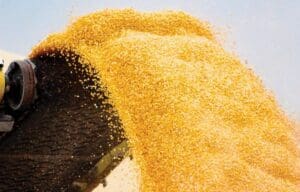By Will Verboven, Contributing Editor
Many years ago, when I first started writing for this illustrious publication, I recall there were trade issues affecting the cattle and beef business between Canada and the United States. One remembers counter vail actions, BSE restrictions, border inspection mischief, COOL legislation, bluetongue regulations and other trade issues long forgotten.
Over those years, I expect millions of taxpayer and cattle producer dollars were spent on both sides of the border by legions of lobbying groups, politicians, trade lawyers, government bureaucrats and regulators, just to agitate, create, fight, resolve, defeat or extend a myriad of hurdles to frustrate the 150-year-old cattle and beef trade between our two countries.
I ask myself, did all that vexatious activity for all those years put any extra dollars into cattle producer pockets on either side of the border? I expect most producers would not be able to recall any extra cattle profits that resulted from any border issues with Canada. That might have something to do with the fact that Canadian cattle and beef continue to share less than 10 percent of the U.S. market.
I suggest that all of the trade issues between Canada and the United States have had the exact opposite effect – besides the millions of expenditures mentioned earlier – millions more have been lost by producers, feedlots, and processors through lost or restricted market opportunities.
But as the saying goes, that’s all water under the bridge now – except that it seems a new wave of trade mischief could hit Canadian cattle producers if what is happening in the pork market is an indication of what may yet come. American pork was recently hit with a retaliatory tariff by Mexico in response to President Trump’s tariffs on Mexican steel and aluminum imports. Twenty-five percent of U.S. pork exports go to Mexico; much of that pork will be looking for a new home back in the United States and Canada. You can expect that pork will be sold at fire-sale prices that will affect retail beef prices sooner or later since most consumers tend to vote with their wallets when it comes to food prices.
President Trump may figure that using tariffs is a good hammer as a negotiating tactic for trade, but the unintended consequences are beginning to hurt other sectors. Beef will not be spared. Therein lies the worry for the Canadian cattle industry and its exports to the United States.
Many of us wonder why cattle and beef imports haven’t been targeted by the President yet – they may well have been by press time. The concern is how the Trump administration will be interpreting beef and cattle import and export statistics. For instance, from 2006-2014 the United States had a beef trade surplus with Canada and Mexico. In recent years it did not – but that’s the nature of a longstanding cyclical trade and normal market responses.
Contrary to what some anti-trade groups like to imply, there are no tariffs or trade barriers to American cattle and beef exports to Canada at present. Common sense would indicate that the trade is harmonious and functions according to North American free market supply and demand, so why mess it up with arbitrary tariffs from a trade war that has nothing to do with cattle and beef business?
Alas, the nature of a trade war is at times completely political and is subject to which lobby has the ear of the President. The latter may be the big worry as to when or if the cattle and beef import/export business may be hit by a trade war retaliatory tariff.
U.S. cattle production ranks number 1 for cash farm income, so that industry’s producer groups wield a lot of political power in Washington. The National Cattlemen’s Beef Association (NCBA) is the big dog and has stated that they support the North American Free Trade Agreement (NAFTA), which includes the cross-border livestock and meat trade. From that perspective, one assumes that they would oppose the imposition of any tariffs on Canadian cattle and beef imports. However, Canadian cattle producer groups had hoped that influential organizations like the NCBA would be more public and vocal in their support of NAFTA and particularly free trade in cattle and beef between our two countries.
There is a political dilemma here as I understand that most ag voters support President Trump, who is personally against NAFTA. The worry for Canadians is that smaller anti-trade groups like R-CALF may have an undue influence on the President and may cause him to take their advice and rashly impose tariffs on Canadian cattle and beef imports in some trade retaliation situation. It’s all so unnecessary, but in the cattle business, we like to repeat history. At this rate, cattle cross-border trade issues will outlive us all.





